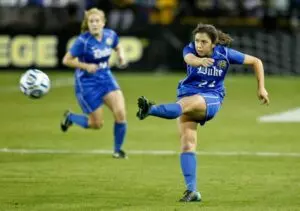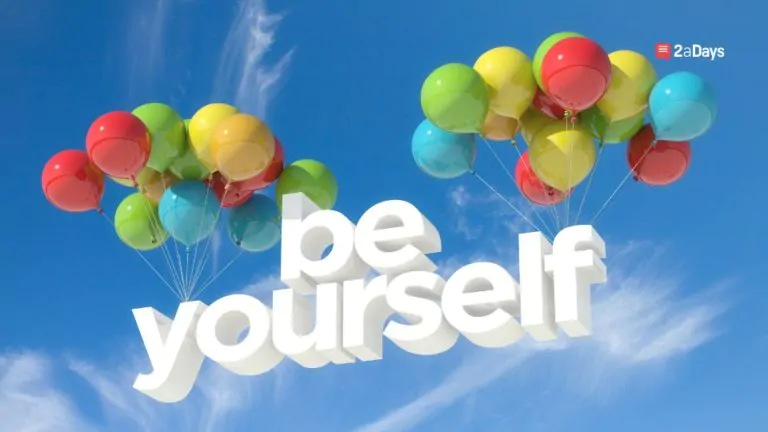“I experienced body-shaming from my coach–it made me feel like I was not good enough.”
These are the words of Kristi*, a Division I athlete who has been struggling with her mental health while competing at her “dream school” and she isn't alone–about 22% of young adults aged 18-25 experience some form of mental illness, according to the National Institute of Mental Health. However, while many institutions are including an athlete's mental well-being as a necessary part of overall health, there are still many college -athletes around the country who struggle with their mental health.
Why? Many factors contribute to poor mental health, but athletes may be particularly susceptible because they are frequently placed in a position to be criticized and judged. It is a commonplace to compare oneself to the competition and to do whatever is needed to win. Such thoughts and actions can cause someone's mental health to suffer.
Words Hurt, Too
Kristi has battled consistent negative thoughts and feelings about herself for some time, but the direct comments from coaches and teammates about her body and athletic ability were detrimental to her self-perception. “ I can recall times when my coach told me that I was too fat, too big, or any other description directly related to my body,” Kristi recalled. “These comments hurt me.”
Kristi's coach made similar remarks when she was recovering from an injury that took her out of play for months. Injuries are an unfortunate reality for many athletes and Kristi's sidelined her for four months. In order to recover correctly, she was not allowed to practice with the team and working out and was limited from little to no physical activity at all. This was a tough time for her because she felt disconnected from her teammates and coaches. She also felt overlooked and underappreciated.
Related: The Prevalence of Eating Disorders Amongst Female Athletes (Part One)
“Not only did I receive comments about my weight,” she remembered, “but I was also told things like I was useless to the team. Obviously, it really hurt me to hear these things from my coaches.” After hearing such comments, Kristi began to exhibit symptoms of depression and began to change her eating habits. She also began to spend less and less time with friends and always felt like she was alone.
Choosing Recovery
It became clear to her halfway through her first semester of sophomore year of college that it was time to address her struggles. “I noticed that I was sleeping and disliking myself more, and I knew it was time to do something,” Kristi said, so she told her parents, sibling, coaches, and her boyfriend about how she was feeling while also seeking treatment from her university's mental health doctors. During this time, she was diagnosed with depression, early-stage eating disorder, and seasonal affective disorder. “This was tough for me,” Kristi said, “I was ‘invincible,' I could not even imagine this life for myself years before.”
Related: Arielle Sanders: Having an Injury as a College Athlete
Kristi's doctors recommended that she find something that she loves to do, something that is just for her. As an athlete, Kristi turned to exercise as a way to relieve stress and help her focus.
“All my life, running was used as a punishment for doing something wrong in practice,” Kristi said. “Because of my injury, I could not run for a while, but once I started running, I wanted to do it, I enjoyed it. This was something I could do whenever I wanted to, and it really helped me realize that it was time to focus on myself and my health.”
More Than a Diagnosis
Her recovery was a long and challenging process but was immensely important–Kristi believes that her mental illness does not define her. Being an athlete was the major contributor to the cause of her struggles, but it was also a part of the solution. “As a student-athlete, people will always tell you that [recovery] is a challenge, but it is always worthwhile because of the sense of community you will feel,” she said. “You know that you are skilled in your sport when you play at such a high level, but this competitive nature can also cause too much comparison and being too hard on yourself–it can be very difficult to balance.”
Related: Managing Mental Health On and Off the Field: 4 Tips for Athletes
She mentioned her battle with mental illness to her teammates and they tried to be supportive, but many did not know how to react to the situation. Kristi wishes that others would be more conscious about what they say. “One time I overheard some of my closest teammates talking and complaining about how they did not understand my mental health struggles,” she recalled/ “That was really difficult to hear because while I know there is a stigma around mental illness that many are trying to overcome, it is clear that it is still a stigma.”
Kristi wants people to be less judgemental of those who are battling mental illness. “My parents always told me to treat others like you would want to be treated,” she said. “Hopefully, we will see more of that.”
For those who are struggling with their mental well-being, Kristi recommends reaching out to someone you feel comfortable talking to. It may be difficult to admit to others what you are feeling, but letting others be aware can make a significant difference. She also encourages finding something that you love doing. “For me, running helped me feel like myself again,” she said. “Other things, such as staying organized and listening to music, keeps me outside of my head when things are getting tougher than normal.”
*Name has been changed for anonymity
Mental Health Resources For Athletes:
There is a National Helpline number available 24 hours, seven days a week for any who would like free and confidential referral and information about either mental health or substance abuse can be reached at 1-800-662- 4357
The NCAA has resources in regards to mental health education through its website.
The National Athletic Trainers Association also provides information about mental health.
Have an idea for a story or a question you need answered? Want to set up an interview with us? Email us at [email protected]
* Originally published on January 24, 2023, by Jennifer Cone







